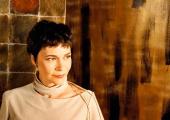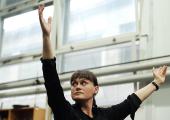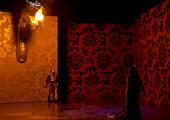Rameau's Castor et Pollux, Theater an der Wien

Leggy recitative guides us to heaven and hell in a compelling family drama
For us Ramistes the brilliance came as no surprise. But did the genius come across to the uninitiated? This new production of Castor et Pollux, one of Rameau's finest tragédie en musique, was the Baroque composer's Austrian stage premiere. Would the Theater an der Wien's audience look past the oddities and archaisms and unfamiliarities of Rameau's 300-year-old musical and dramatic language and embrace the radical nature of his leggy recitatives and proto-Romantic ebb and flow? No question.









